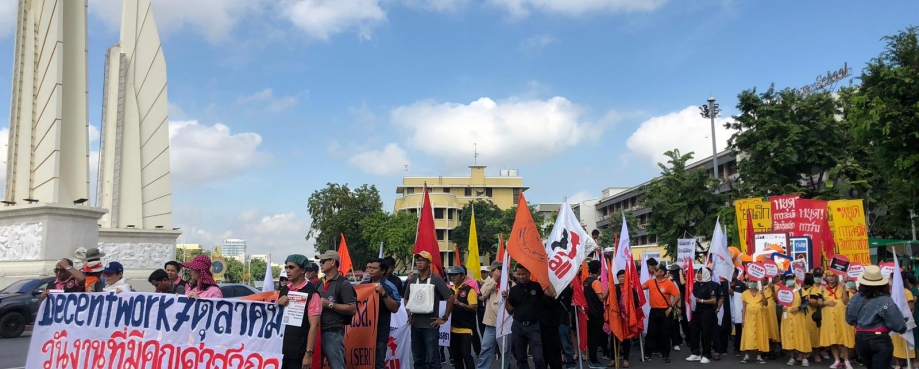
ETI and a number of its member brands has joined a number of leading NGOs, trade unions, and multi-stakeholder initiatives to call on the European Commission to require labour reform in Thailand to be a precondition to the resumption of trade negotiations.
ETI is among 45 organizations to write to Valdis Dombrovkis, Executive Vice President of the European Commission, urging the European Union to require labour reform in Thailand as a precondition to the resumption of trade negotiations with the Government of Thailand. The letter was coordinated by theSeafood Working Group (SWG) in collaboration with Finnwatch.
EU-Thai trade negotiations began in 2013 but were suspended because of Thailand’s May 2014 military coup. Since elections in March 2019, and the ascension of former coup leader Gen. Prayut Chan-ocha as Prime Minister, the EU has indicated that it sees the end of Thailand’s formal military government as an opportunity for re-engagement on trade with Bangkok. In 2019, the EU and the Thai government began preparations for a possible resumption of the EU-Thai free trade negotiations. The EU has pledged to place respect for human rights at the core of its trade policy. Recent events in September and October 2020 to crack down on peaceful protesters in Bangkok raise further concerns the EU must take into serious consideration.
In a letter to Valdis Dombrovkis, Executive Vice President of the European Commission, the signatories point to Thailand’s weak labour laws and the government’s or track record in preventing and countering forced labor, discrimination against migrant workers, and violations of freedom of association.
The letter calls for the European Union to establish a clearly defined, measurable and time-bound roadmap for Thailand to follow before trade negotiations can be restarted. In particular, it calls for this roadmap to include ratification of ILO Conventions 87 and 98, covering freedom of association and collective bargaining rights, followed by passage of amendments to national labor laws to bring them into compliance with these core ILO conventions.
The SWG is a global coalition of labour, human rights and environmental organizations coordinating to end forced labor in the seafood industry, convened by Global Labor Justice – International Labor Rights Forum (GLJ-ILRF).
